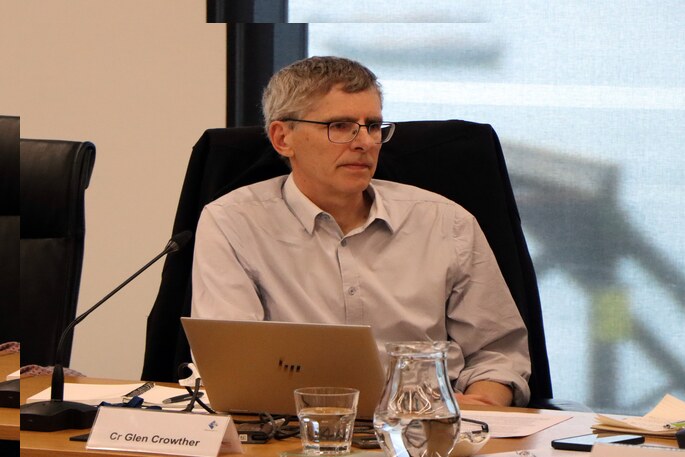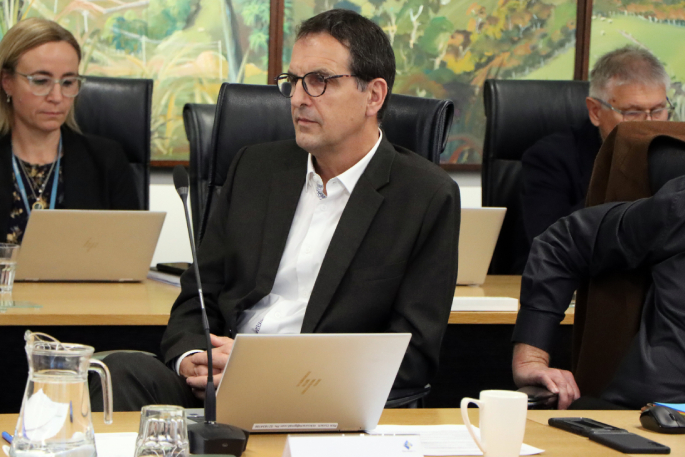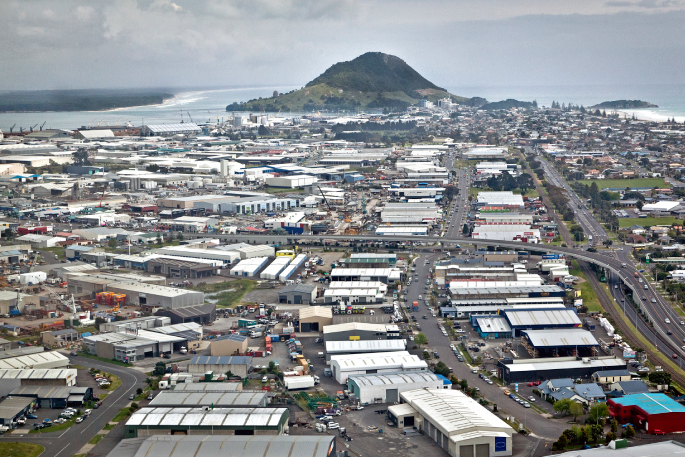Tauranga’s new councillors are backing a new rate that sees industrial businesses pay more than residents.
Under the industrial rate introduced this year, businesses in that category had a median rates increase of 37.7% for 2024/25, which was much larger than the residential rates jump.
The commission, which ran Tauranga City Council from 2021 until July’s election, introduced the industrial rate and increased the commercial rate to reduce the burden on residential ratepayers.
The rates categories meant industrial properties would pay 2.6 times more than residential, while commercial properties paid 2.1 times more.
The median rates rise for residential properties was 7% this year.
For commercial ratepayers, the median increase was 10.7%.
On Tuesday, the accountability, performance and finance committee meeting was presented with a report about the council’s rates policy and rating categories.
The report provided background on the rates policy and made recommendations ahead of the council’s annual plan process next year.
.jpg)
Mayor Mahé Drysdale said the rating categories were never going to be perfect. Photo / Alisha Evans
Mayor Mahé Drysdale asked for the reasons behind the commercial and industrial categories.
Rating policy and revenue manager Jim Taylor said part of it was finding an equitable solution for what each sector should pay.
The industrial category enabled the council to collect revenue from industrial businesses that had a bigger impact on roads and created “environmental issues,” Taylor said.
The council also did not want to increase the commercial differential because the cost-of-living crisis was particularly impacting hospitality businesses, he said.
Chief executive Marty Grenfell said some large industrial organisations that had a significant impact on the community were not necessarily paying their fair share.
But the industrial category was a “reasonably blunt tool” that may have captured some industries and organisations it had not intended to, Grenfell said.

Glen Crowther said the rating categories were a "game-changer". Photo / Alisha Evans
Councillor Glen Crowther thanked the commission and previous councils for introducing the separate rates categories.
“This is a huge shift in Tauranga’s funding scenarios, it’s just an absolute game-changer.”
The council was now in the fine-tuning phase, he said.
Drysdale agreed it was a blunt tool and said it was never going to be perfect.
There had been huge rates increases to get to the differentials but now they were there, the increases would be incremental, he said.
“We’re not going to get as much of a complaint going forward.
“It was a shock and also in a pretty hard financial environment. But going forward [with] just the normal increases maybe some of that noise will go away and they’ll kind of understand.”
Drysdale said he was supportive of where the council had got to with rates and past decisions had got the council in a “pretty good spot”.
“From a residential ratepayer point of view, it’s a much fairer place to be.”

Councillor Rick Curach said compared to other councils the rates increase wasn’t unreasonable. Photo / Alisha Evans
Councillor Rick Curach said the timing for the increase could not have been much worse because of the “very difficult economic situation”.
“A lot of businesses are struggling and even going under, so they certainly feel the additional rates.”
Compared to other councils the rates increase was not unreasonable, he said.
Curach said he looked forward to hearing from submitters about the rates through the annual plan process.
The current rates system could be tweaked and the public would help guide the council with it, he said.
The report recommended the council consider removing smaller operations from the industrial category, reviewing the level of the differential, and the possibility of recombining commercial and industrial rating categories as part of the annual plan process.
LDR is local body journalism co-funded by RNZ and NZ On Air.




10 comments
Hmmm
Posted on 07-11-2024 09:42 | By Let's get real
The cost of Empire building, might become the loss of businesses and employment to cheaper towns, such as Tokoroa, Kawarau or maybe Rotorua.
Maybe spending less on vanity projects would balance the budget and keep locals in employment.
Hmmm
Posted on 07-11-2024 09:52 | By Let's get real
I wonder how many other suburbs will look like Greerton..? Where charity shops outnumber small retailers.
Oldie
Posted on 07-11-2024 13:21 | By bruce simister
I doubt many of these councilors own any industrial or commercial land,nor are they retailers who as per their lease pay rates.
The effected parties already pay rates for the services they enjoy by rates paid for homes they own.
It's a double whammy and a rort,don't get me started on regional council rates,that worse,how they can sit in an ivory tower and charge what they like is just theft I reckon.
The Master
Posted on 07-11-2024 14:04 | By Ian Stevenson
The hikes in rates on industrial and commercial will obviously be passed on to consumers by price increases of everything. Residential can not escape paying all no matter how much TCC attempt to muddy the waters...
This is not about being "fair" or seen to be "fair" to the community. What is really going on is an attempt to impose and desperately justify somehow huge spending and blowouts across TCC on all it touches... somehow TCC continues to spend in a completely out of control manner, the TCC staff solution is to hike rates, hike everything as they desperately try to stay ahead of the debt. That also is a no win situation for the entire community.
Money
Posted on 07-11-2024 16:42 | By Kancho
So council want more revenue so how about challenging all expenditure for value for money and concentrate on essential services . A top to bottom restructure to cut staff costs seems long overdue after the spend up of the unelected commission. So Council now you have been duly elected how about giving us some leadership and cost cutting. It maybe that ratepayers and business both industrial and commercial are easy targets but that has a downside of losing some and less money to collect , So how about showing us how to run leaner business and show some better management of business. You wanted the job so do it.
You need business, cut council expenses
Posted on 08-11-2024 07:39 | By an_alias
We all need them, its not the other way round ?
So in a climate that is tough you kick the people who are employing others ?
I JUST CAN"T believe you are not even looking at cutting YOUR SPENDING.
COUNCIL IS THE PROBLEM, not business.
NO MUSEUM might be a good place to start !
The Master
Posted on 08-11-2024 16:13 | By Ian Stevenson
The TCC FAB-4 have already committed TCC to some $3.1-billion in debt by 2034 (that is the LTP they they approved - assuming TCC budgets/costs are right =never are...), yes it includes a massive amount of spending on what disingenuously is called "infrastructure"...
That includes: - a new staff "palace" $400m, Museum-CBD library-exhibition center-welcome "something?" center, said to be $303m, but $54m was added the afternoon approved, by the time its built the bills will be more like $500m, Doman second-stadium $200-250m, Memorial pools-wellness-event center...$250-300m, Gatepa-museum $50m?
I am struggling to see any "Infrastructure" in here?
But actually the real issue TCC ratepayers then face are: -
1. No plan on how to repay the debt
2. Interest on $3-billion @ 5% = $150-million/pa (a-lot of rates needed?)
3. Annual losses of perhaps $60-80m? also from rates...
4. TGA-has huge rates already.
The Master
Posted on 08-11-2024 16:16 | By Ian Stevenson
@ an-alias
@ Kancho
No self interested average Bura-rat is ever going to willingly look at spending EVER! Obviously that you mean that the fellow Bura-rats may be out of a job which is contrary the Bura-rat life long held belief/love/addiction of more-expansion of the Bura-rat ranks is the only answer...
Obviously they all need more money on a never ending exponential basis to achieve that single goal. Anything that contradicts that is a hennas crime in Bura-rat land!!!
Failed accountant
Posted on 09-11-2024 16:29 | By Informed
So the Sunlive readers don’t think that industry property owners that have have multiple vehicles and trucks on our roads should pay more the residents.
They just don’t get it.
Good to see the failed accountant trying to act like TCC are the bad guys and he has some moral high ground.
@informed
Posted on 10-11-2024 12:38 | By Let's get real
You really are tiresome. Overlooking the obvious is a council prerequisite though.
Any business that employs staff and runs additional vehicles, should be applauded. They are adding to the local economy, supporting people to pay their rates/ tax demands and actually improving the country by paying government taxes, ACC levies and additional inclusions on the cost of their fuel.
We have a council that is growing their debt exponentially, along with their empire.
Households have a much tougher problem trying to service their debts. They can't just go out and put their hands into other peoples' pockets. They have to rationalise their wants and focus solely on needs.
If only we could get council to understand that!!!
NZ is a nation built on SMALL companies, employing ten or fewer staff, who are then in turn are funding council spending.
Empires tend to collapse....
Leave a Comment
You must be logged in to make a comment.